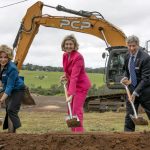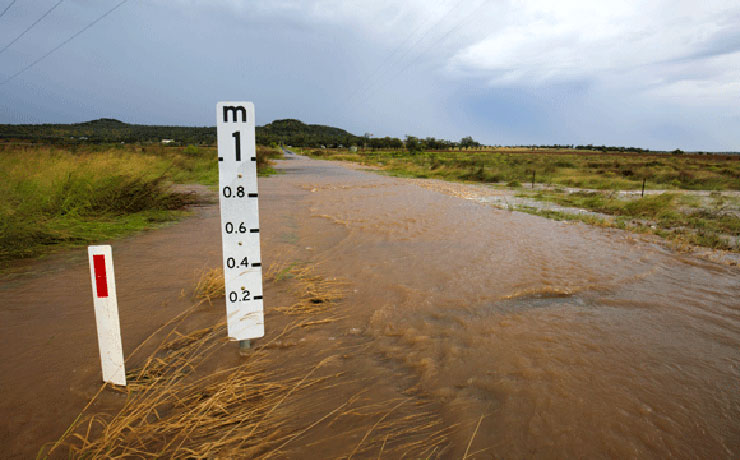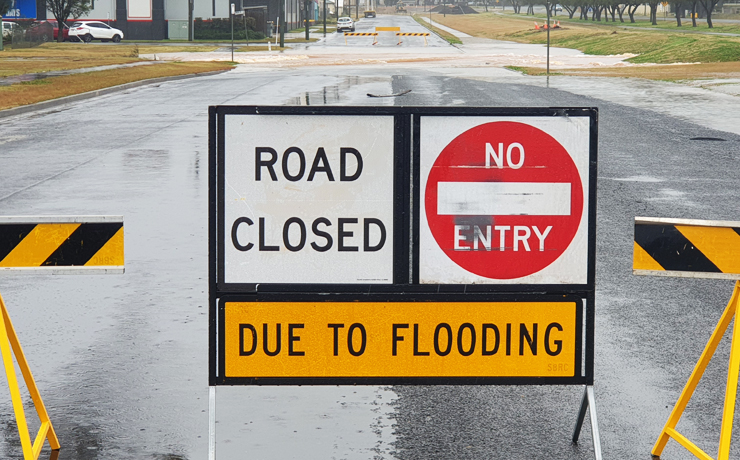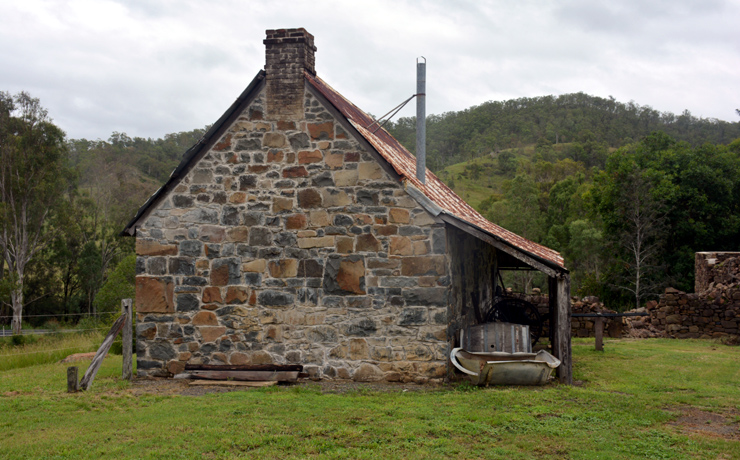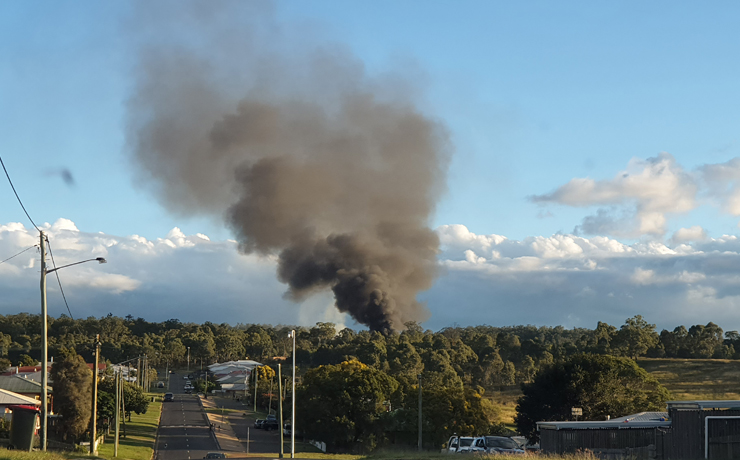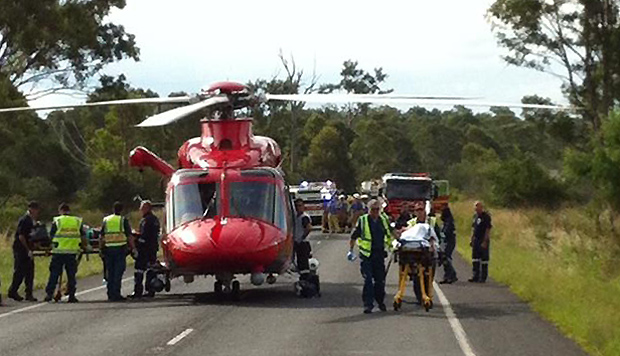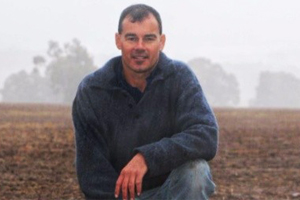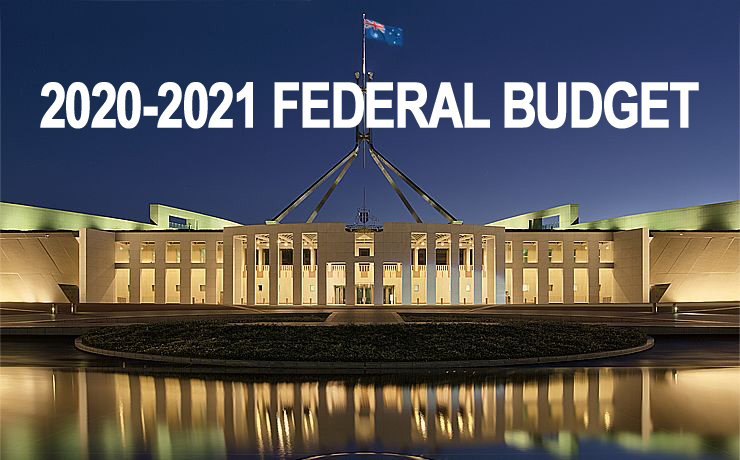 |

October 7, 2020
by Anne Miller
The COVID-19 Budget delivered by Federal Treasurer Josh Frydenberg on Tuesday night has been broadly welcomed in regional Australia.
Positives include tax cuts, support for employers and agribusinesses, and job creation programs to help restart the economy.
Negatives include a projected deficit of more than $213 billion – the biggest since Word War II – and unemployment forecast to peak at 8 per cent.
There is also no good news for people pressing for a permanent increase in the JobSeeker allowance or a continuation of JobKeeper payments past March.
* * *
South Burnett
Allocations for the South Burnett (some previously announced) include:
- $4.7 million towards the upgrade of the Wide Bay Highway / Bruce Highway intersection at Bells Bridge
- $15.2 million towards upgrades of the D’Aguilar Highway between Caboolture and Yarraman
- Financial Assistance Grants for local Councils: Cherbourg $963,294, Gympie $5,564,026 and South Burnett $7,024,612
- Roads to Recovery Council grants: Cherbourg $39,849, Gympie $1,361,802 and South Burnett $1,973,358
- Local Roads and Community Infrastructure program allocations: Cherbourg $39,849, Gympie $1,361,802 and South Burnett $1,644,465
- $1,596,514 funding for the Murgon Creative Country Association’s purpose-built cultural centre – announced earlier this year – was also confirmed in the Budget.
South and North Burnett residents hoping that water projects may be progressed locally will be heartened by the extra $2 billion allocated for new projects through the National Water Infrastructure Development Fund although there’s no word on what these new projects will be.
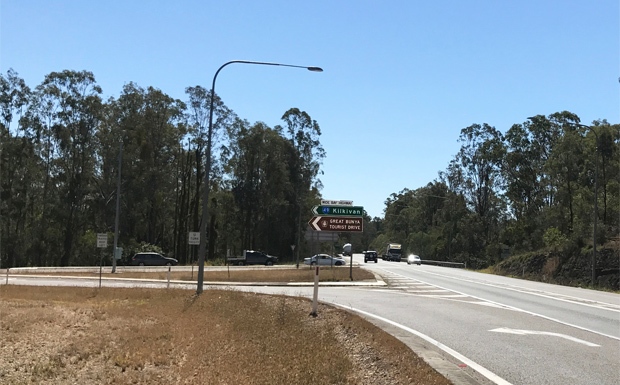
* * *
Rural Areas
Announcements that affect rural, regional and remote areas of Australia include:
- $200 million to extend the popular Building Better Regions Fund (BBRF) for a fifth round
- $100 million for the Regional Recovery Partnerships fund
- $41 million for research into decentralisation
- $30.3 million for the Regional Connectivity Program to support telecommunication projects
- An extra $28.1 million to extend the Stronger Communities Program
- $5.7 million for a new Building Stronger, Resilient Regional Leaders initiative
- $53.6 million over six years to extend the Regional and Remote Communities Reliability Fund to support pilot studies for microgrids in regional and remote areas
- $16.3 million over two years to create temporary incentives to encourage recent school leavers to undertake seasonal horticultural work
- An extra $11 million a year, indexed annually, for the National Aerial Firefighting Centre, taking the annual commitment to $26 million
- $50.0 million to extend the On-Farm Emergency Water Infrastructure Rebate Scheme
As well, an extra $1 billion has been allocated over two years for local councils under the Local Roads and Community Infrastructure Program, building on an initial $500 million announced in May.
Other rural boosts include:
- $222.2 million for “Digital Services to Take Farmers to Market” program to modernise agricultural exports
- $10.9 million to build a more competitive export meat industry and $10 million for streamlined plant export regulations
- An extra $2 billion in loan funding to the Regional Investment Corporation for the 2020-21 financial year to double available farm and small business loan funds
- Funding of $254.6 million over four years for the Bureau of Meteorology
- $86.0 million over four years to establish eight Drought Resilience and Adoption Hubs that support networks of researchers, farmers, agribusiness and community groups
Rural health will receive:
- $50.3 million over four years for the Rural Health Multidisciplinary Training Program
- $125 million over four years to bring clinical trials to regional areas
A commitment made before the last Federal Election to deliver $105 million for Indigenous housing in Queensland has been realised with a $100 million one-off payment to the State Government in 2020-21 which will benefit 17 Aboriginal and Torres Strait Islander councils. This is on top of $5 million allocated in 2019-20. Most of this funding is expected to go to Torres Strait Island communities.
* * *
Other Budget Highlights
- Taxpayers will receive a tax cut backdated to July 1
- People receiving the age pension, disability support pension, carer payment, family tax benefit, family tax benefit lump sum, double orphan pension, carer allowance, Commonwealth seniors health card, pensioner concession card and veterans card will receive a $250 payment in December and another in March
- $850 million JobMaker hiring credit will be payable for up to 12 months to employers who hire young people (aged 16-35)
- $1.2 billion Boosting Apprenticeship Commencements – a 50 per cent wage subsidy to all businesses who take on new apprentices from October 5, 2020. This will support 100,000 new apprentices and is available until September 30, 2021
- $2.8 billion Supporting Apprentices and Trainees wage subsidy will help businesses keep apprentices and trainees employed
- $26.7 billion in instant asset write-offs for business – uncapped
- $4.3 million for Beyond Blue’s NewAccess service, providing mental health support for small businesses
- An extra 10,000 places added to the First Home Loan Deposit Scheme
- $1.6 billion commitment to provide an extra 23,000 Home Care packages, raising the total number to 180,000.
* * *
Budget Reactions
The Australian Local Government Association has praised a $1 billion investment in local roads and community infrastructure.
The boost in funding builds on the $500 million Local Roads and Community and Road Infrastructure program announced in May; with councils to receive advice soon about their allocations.
ALGA president David O’Loughlin said the extra money for local infrastructure, which would be provided to local governments in 2021, coupled with councils’ ability access to the $1.2 billion wage subsidy program for trainees and apprentices, would enable them to approve more “shovel-ready” projects.
* * *

(Photo: Twitter)
The Queensland Farmers’ Federation welcomed support to expand agricultural export markets, the extension of the instant asset write-off for machinery and other equipment valued up to $150,000 and relocation rebates to address forecast labour shortages.
“With nearly 70 per cent of Queensland drought declared, the Federal Government should also be commended for maintaining funding for drought relief and disaster recovery arrangements,” CEO Dr Georgina Davis said.
“However, with the dissolution of the Queensland Parliament ahead of the state election, QFF is seeking a commitment from all political parties that they will immediately utilise the available Federal Government funding and invest in the future of the State’s agriculture sector.”
“The next Queensland Parliament must fast-track smart irrigation water infrastructure and efficiency projects through the National Water Infrastructure Development Fund, and match the Federal Government’s funding through the On-Farm Emergency Water Infrastructure Rebate Scheme which provides up to $25,000 for farmers to clean dams and drill bores.
“Additionally, the State Parliament must also recognise the role of agritourism, which could add $5 billion to the Queensland economy by 2030, by building on the federally funded Regional Tourism Recovery Package and partnering with QFF to deliver our Growing Queensland’s Agritourism Sector initiative.”
Lobby group Farmers for Climate Action described the Budget as “a missed opportunity”.
CEO Wendy Cohen said the Federal Government could have simultaneously created good jobs in regional and rural communities while tackling climate change but instead has chosen to prop up the fossil fuel industry.
* * *
The National Rural Health Alliance welcomed the expansion of Rural Health Multidisciplinary Training Program infrastructure, which will help more students train to be medical professionals in rural areas.
“The $125 million program to improve access to clinical trials in rural areas looks promising and we look forward to finding out more detail from government about how this program will work,” CEO Dr Gabrielle O’Kane said.
“It’s also good to see funding confirmed for the extension and expansion of the office of the National Rural Health Commissioner, as well as the extension of telehealth services for six months.
“More broadly, more support for mental health across the country is welcome but it will be important to ensure that rural areas get their fair share of the funding – which historically hasn’t been the case.
“Expanding access to psychological services under the Better Access scheme is a good step as well, but unless that’s coupled with measures to address workforce issues in rural areas then it won’t necessarily mean better access for people in these areas at all.”
The Australian Nursing and Midwifery Federation welcomed the Budget’s funding for mental health services, the NDIS and PBS listings for drugs to treat a range of diseases, including ovarian cancer, leukaemia, melanoma and Parkinson’s disease.
However, the union said there was too little investment in nursing and midwifery and even less for aged care workers, with action deferred until the completion of the Royal Commission in early 2021.
* * *
The Australian Council of Social Service criticised the failure to deliver a new, increased JobSeeker rate.
CEO Dr Cassandra Goldie said more than two million people currently receiving higher income support would be uncertain about their future beyond the end of the year when income support drops back to the pre-COVID level of $40 a day.
“This Budget provides a glimmer of hope on jobs for young people in a really tough year. While we welcome the wage subsidy for under 35s who are badly impacted in this recession, the Budget lets down 900,000 people on JobSeeker who are over 35,” Dr Goldie said.
“We’re calling for the wage subsidy for young people to be urgently extended to people of all ages who have been unemployed for a year or longer.
“People without paid work will see no benefit from the income tax cuts brought forward which mainly go to people who are lucky enough to have jobs, with the largest amounts going to people on higher incomes. There is also no income support in this Budget for people on temporary visas, who have been left behind in the pandemic.”
* * *
National Aboriginal and Torres Strait Islander Legal Service expressed concern no extra funding for legal assistance services was included and cuts to JobKeeper and JobSeeker could lead to more Indigenous people ending up before courts.
“This Budget makes the lives of rich people easier while poor people feel the brunt of again being left behind by the government,” NATSILS co-chair Nerita Waight said.
“This government has offered no additional money to Aboriginal and Torres Strait Islander Legal Services, or the rest of the legal sector, despite existing enormous pressure on our services, now exacerbated by COVID-19.”
* * *
Social housing was a “missed opportunity” in the Budget, according to a union that represents construction workers.
“Construction of social and build-to-rent housing would stimulate the economy and create jobs today, long before the infrastructure spending announced in the Budget comes to fruition,” CFMEU spokesperson Dave Noonan said.
“Unions, industry and the community have been calling for investment in social and affordable housing as a powerful stimulus measure that would create tens of thousands of jobs, put money into local communities and begin to address Australia’s affordable housing crisis.”
Master Builders Australia praised the Budget, saying it would boost confidence in the building and construction sector, protect the viability of thousands of building and construction businesses and save the jobs of the more than one million people that they employ.
“Hundreds of thousands of small building and construction businesses will now have hope that they can stay afloat,” CEO Denita Wawn said.
“The extension of the First Home Loan Deposit scheme and the $1 billion for the construction of new affordable housing will extend the opportunity to own a home to thousands more people for whom it seemed out of reach.”
* * *
National Seniors Australia said the announcement of 23,000 home care packages was a start but spread out over four years barely addressed the waiting list of almost 100,000 people.
Spokesperson Ian Henschke said the Budget was also disappointing because it failed to solve systemic problems in residential aged care.
“Creating more training for aged care staff and providers is a good start but we don’t know how many employees will benefit from the $11.3 million announcement,” he said.
NSA welcomed two payments of $250 to aged pensioners and Commonwealth Senior Health Card holders, but Mr Henschke said the pension remained too low to live on especially for those paying rent.
Leading Age Services Australia – a body that represents aged care providers – acknowledged the investments in aged care.
“Hopefully, this Budget is just a start, a down payment on a better age care system,” CEO Sean Rooney said.
“Evidence to the Royal Commission has recently highlighted deep structural problems with funding for aged care. While this Budget does not address all of these issues, it does lay a platform for the future.”
UPDATE October 8: National Seniors Australia clarified on Thursday the 23,000 extra home care packages announced in Tuesday’s Budget would be rolled out this financial year, not over four years as they had previously stated. Mr Henschke said this would make a real difference to the waiting list.
* * *
The peak body representing new car dealers said the Budget was an important step in driving the recovery in the automotive industry and the wider economy.
“This Budget acknowledges that business investment will be a crucial part of Australia’s economic recovery through the newly announced temporary full expensing coupled with the instant asset write-off,” Australian Automotive Dealer Association CEO James Voortman said.
“The government is encouraging businesses to invest and employ more people while bringing forward tax cuts. (This) will give consumers more disposable income which will trickle down into the economy.”
However, AADA was disappointed that import tariffs on imports and the luxury car tax had not been removed.
“(They) are protecting a domestic manufacturing industry which no longer exists and their removal could benefit consumers and retail businesses,” Mr Voortman said.
[UPDATED]








